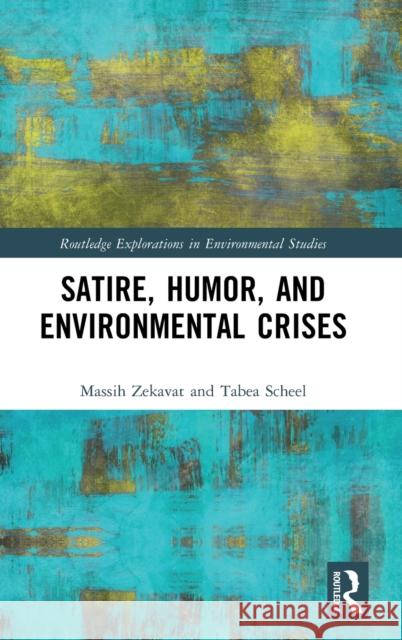Satire, Humor, and Environmental Crises » książka
Satire, Humor, and Environmental Crises
ISBN-13: 9780367517687 / Angielski / Twarda / 2023 / 256 str.
Satire, Humor, and Environmental Crises
ISBN-13: 9780367517687 / Angielski / Twarda / 2023 / 256 str.
(netto: 672,22 VAT: 5%)
Najniższa cena z 30 dni: 629,67
ok. 16-18 dni roboczych.
Darmowa dostawa!
This book explores how satire and humor can be employed to address and mitigate ecological crises at individual and collective levels. It will be of great interest to students and scholars interested in environmental humanities, communication science, psychology, and critical humor studies.
Satire, Humor, and Environmental Crises explores how satire and humor can be employed to address and mitigate ecological crises at individual and collective levels.
Besides scientific and technological endeavors, solutions to ecological crises must entail social and communicative reform to persuade citizens, corporations, organizations, and policymakers to adopt more sustainable lifestyles and policies. This monograph reassesses environmental behavior and messaging and explores the promises of humorous and satiric communication therein. It draws upon a solid and interdisciplinary theoretical foundation to explicate the individual, social, and ecospheric determinants of behavior. Creative works of popular culture across various modes of expression, including The Simpsons, Last Week Tonight with John Oliver, and The New Yorker cartoons, are examined to illustrate the strong if underappreciated relationship between humor and the environment. This is followed by a discussion of the instruments and methodological subtleties involved in measuring the impacts of humor and satire in environmental advocacy for the purpose of conducting empirical research. More broadly, the book aspires to participate in urgent cultural and political discussions about how we can evaluate and intervene in the full diversity of environmental crises, engage a broad set of internal and external partners and stakeholders, and develop models for positive social and environmental transformations.
This book will be of great interest to students and scholars interested in environmental humanities, communication science, psychology, and critical humor studies. It can further benefit environmental activists, policymakers, NGOs, and campaign organizers.











